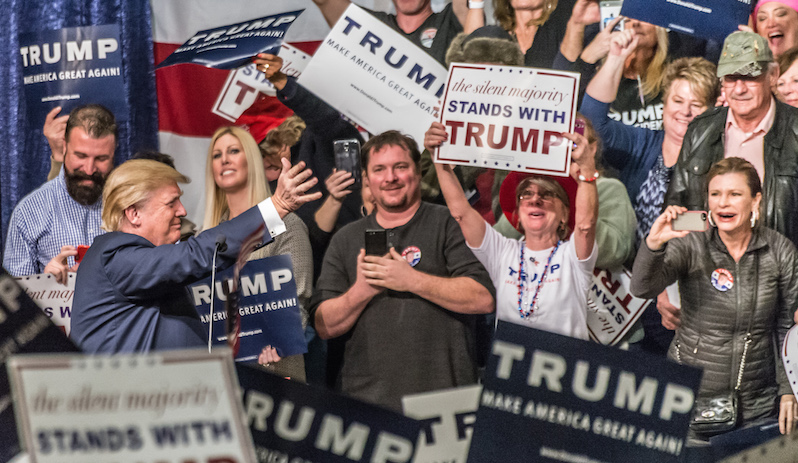Trumpism: Made in the United States by Republican Hate and Democratic Hypocrisy
Mainstream Democrats have exaggerated the extent of white working-class support for Donald Trump. They also fail to understand the sources of the white proletarian Trumpism that do exist. Donald Trump at a rally in Reno, Nev. (Darron Birgenheier / CC -BY-SA 2.0)
1
2
3
Donald Trump at a rally in Reno, Nev. (Darron Birgenheier / CC -BY-SA 2.0)
1
2
3
As we navigate an uncertain 2025, with a new administration questioning press freedoms, the risks are clear: our ability to report freely is under threat.
Your tax-deductible donation enables us to dig deeper, delivering fearless investigative reporting and analysis that exposes the reality beneath the headlines — without compromise.
Now is the time to take action. Stand with our courageous journalists. Donate today to protect a free press, uphold democracy and uncover the stories that need to be told.






You need to be a supporter to comment.
There are currently no responses to this article.
Be the first to respond.